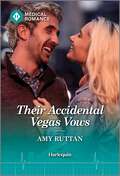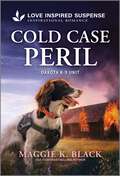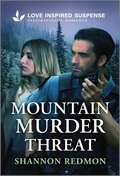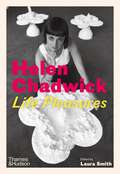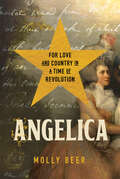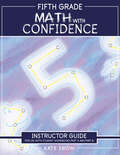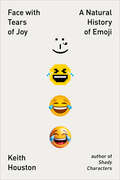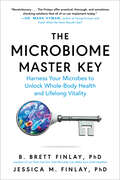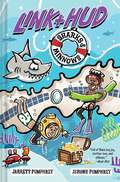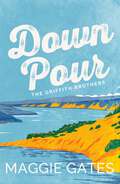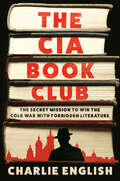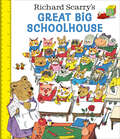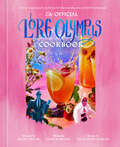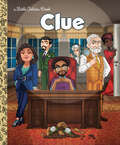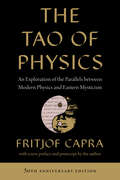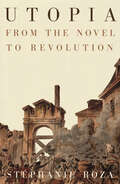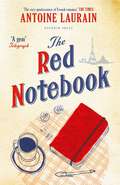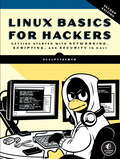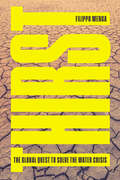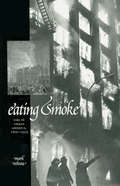- Table View
- List View
At Home in Stone Creek & His to Claim: Two Heartfelt Second-Chance Romance Novels
by Linda Lael Miller Brenda JacksonBESTSELLING AUTHOR COLLECTIONReader-favorite romances in collectible volumes from our bestselling authors.At Home in Stone Creek by #1 New York Times bestselling author Linda Lael Miller It&’s hard for Ashley O&’Ballivan not to feel a little lonely. After all, everyone in her family is marrying and having babies—except her. She hasn&’t had a booking at her bed-and-breakfast in far too long. And she hasn&’t seen or heard from the handsome, mysterious man who broke her heart in months. But then Jack McCall suddenly reappears—with no explanations and no promises. Jack has secrets, secrets he says he has to keep to protect her. Secrets she fears will ultimately take him away from her again. But this time, Ashley&’s determined to convince him that he&’s at home only in Stone Creek—with her.FREE STORY INCLUDED IN THIS VOLUME!His to Claim by New York Times bestselling author Brenda Jackson When navy SEAL and honorary Westmoreland Mac McRoy returns home, he discovers his wife has left. Teri has retreated to the Wyoming ranch they&’d planned to visit together and is resentful when he follows. She doesn&’t want a second honeymoon; she wants a marriage Mac doesn&’t take for granted. But life-and-death circumstances are about to put their love to the ultimate test.
The Rancher's Secret Daughter: An Uplifting Inspirational Romance (Sage Creek)
by Jennifer SlatteryCould an unexpected reunion Be his second chance at happiness? Just weeks before a horse vaulting performance, Xavier Shaw needs a new coach…and his only option is his ex. Charlotte Murphy broke his heart when she left Sage Creek without an explanation, but now she&’s back to start an equine therapy business alongside her whip-smart little girl. As Xavier and Charlotte work together, old flames reignite and new connections deepen. But with Charlotte&’s secret hanging over them, will they be able to embrace the family they&’re becoming…or will the truth tear them apart once again?From Love Inspired: Uplifting stories of faith, forgiveness and hope.Sage Creek Book 1: Falling for the Family Next DoorBook 2: Recapturing Her HeartBook 3: Christmas on the RanchBook 4: The Rancher's Secret Daughter
Their Accidental Vegas Vows (Jet Set Docs)
by Amy RuttanIn this Jet Set Docs story by Amy Ruttan, it&’s Vegas, baby! When EMT Grace wakes up in bed with her colleague—and his ring on her finger—they fake their relationship to prevent a scandal. But can they ignore the sizzling-hot chemistry between them?WAKING UP MARRIED! When EMT Grace wakes up in Vegas, she&’s shocked to find her gorgeous but guarded colleague Jonah in her bed…and his wedding ring on her finger! Especially as Grace had sworn off romance after her last workplace relationship ended in disaster. So having a husband—even charming Jonah, who gives her butterflies—is not ideal! Grace fears another hospital scandal, and soon she&’s asking Jonah to keep up their accidental marriage. After all, their vows still stand…but what about the undeniable chemistry that bound them to begin with?From Harlequin Medical: Life and love in the world of modern medicine. Jet Set Docs
Cold Case Peril (Dakota K-9 Unit)
by Maggie K. BlackAn unsolved crime. A K-9 team on the case. Unexpected danger is closing in fast… When someone tries to run dog trainer Micah Landon off the road, Officer Lucy Lopez and her K-9 partner, Piper, show up just in time to make a rescue. Someone wants Micah dead—but why? Is this connected to Lucy&’s weapon-smuggling case, in which she&’s investigating Micah&’s younger half brother? Or was Micah attacked because he started looking into the cold case murder of his stepmother? As threats against Micah escalate and secrets are revealed, it&’s clear someone will stop at nothing to keep an unsolved murder buried. Can they uncover the truth before it costs them their lives?From Love Inspired Suspense: Courage. Danger. Faith.Dakota K-9 Unit Book 1: Chasing a Kidnapper by Laura ScottBook 2: Deadly Badlands Pursuit by Sharee StoverBook 3: Standing Watch by Terri ReedBook 4: Cold Case Peril by Maggie K. BlackBook 5: Tracing Killer Evidence by Jodie Bailey
Second Chance in Santiago (Jet Set Docs)
by Tina BeckettPack your suitcase to Santiago in this Jet Set Docs story by Tina Beckett, where a reunion between two childhood sweethearts turns into a sizzling night of passion…but is love worth the risk after years of heartbreak? RISKING IT ALL ON THEIR REUNION! When Viviani was sixteen, she was forced to say a gut-wrenching goodbye to her childhood sweetheart, Cristóbal. So saying &“hello&” to surgeon Cris again twenty years later—as her new colleague!—is totally unexpected. He can still set nurse Vivi alight with one look, but they&’re no longer naive teenagers. Love is the last thing Vivi is looking for after her ex-fiancé&’s cheating, and single dad Cris is clear he doesn&’t do dating anymore. So why is a second chance still so tempting…?From Harlequin Medical: Life and love in the world of modern medicine. Jet Set Docs
Mountain Murder Threat
by Shannon RedmonSomebody wants her dead… Protecting her is his mission. An early-morning run takes a chilling turn when homicide detective Leila Kane is nearly abducted—and becomes a serial killer's latest target. She teams up with her ex-fiancé, Officer TJ Snowe, and they race against the clock to stop the rising body count. After evading several attacks in the mountains, Leila realizes the danger may be linked to her past. And soon the case becomes even more personal when Leila's twin sister is abducted. Can Leila and TJ save her before another innocent life is taken?From Love Inspired Suspense: Courage. Danger. Faith.
Oliver Jeffers (The Illustrators)
by Martin SalisburyAn overview of the life and work of the Northern Irish illustrator, bookmaker, painter, designer, activist, and global superstar in the world of visual communication. A phenomenon of twenty-first-century bookmaking, Oliver Jeffers's energy and curiosity has driven an extraordinary career that shows no sign of slowing. Only in his forties, he has published an array of hugely popular books, both as illustrator and author-illustrator, including How to Catch a Star and Begin Again. This overview of his life and work so far will chart his passion for the environment and his quest to understand humanity's major challenges, and the impact this has had on his creative and intellectual output. The list of Jeffers's accomplishments is long and glittering: he has been granted numerous one-man shows both in the United Kingdom and the United States and was appointed an MBE in 2022 for services to the arts. Most importantly, however, he has tirelessly pushed the boundaries of what a picturebook can be, both in terms of structure and content. His regular exploration of existential issues, both through illustration and other media, such as site-specific installation, has exerted a major influence on the practice of authorial picturebook-making. His works have been translated into multiple languages and into other media, including full-length animated films, such as Lost and Found.
Helen Chadwick: Life Pleasures
by Laura Smith, Marina Warner, Maria Christoforidou, Philomena Epps, Katrin Bucher Trantow, Louisa Buck & David NotariusThe first ever critical biography of Helen Chadwick, who died tragically young but is now revered as a pioneering feminist artist. Helen Chadwick (1953–1996) embraced the sensuous aspects of the natural world, breaking taboos of the "traditional" or "beautiful." Her sculpture, performance, and photography is radical, provocative, and often steeped in humor, and employs unusual, sometimes grotesque materials—bodily fluids, meat, flowers, chocolate, and compost among them. She quickly became a leading figure among Britain’s postwar avant-garde, becoming one of the first women to be nominated for the Turner Prize. A dedicated teacher, she mentored the majority of the Young British Artists. She was also involved in the artistic community at Beck Road, Hackney, whose residents included Maureen Paley, Richard Deacon, and Genesis P-Orridge. Although Chadwick’s work was widely exhibited during her lifetime, attention to it declined following her unexpected death in 1996, and itis only relatively recently that its significance has been acknowledged afresh. Coinciding with a major touring retrospective, this publication spans the breadth of her practice, from her renowned MA degree show In the Kitchen (1977) through to her seminal Piss Flowers (1991–2). Merging art and life, with a focus on Chadwick’s interdisciplinary interests and engagement with education, music, and politics, as well as an in-depth study of her art and ideas, the book is a fitting tribute to her vital impact on social and cultural history.
Angelica: For Love and Country in a Time of Revolution
by Molly BeerA women-centric view of revolution through the life of Angelica Schuyler Church, Alexander Hamilton’s influential sister-in-law. Few women of the American Revolution have come through 250 years of US history with such clarity and color as Angelica Schuyler Church. She was Alexander Hamilton’s “saucy” sister-in-law, and the heart of Thomas Jefferson’s “charming coterie” of artists and salonnières in Paris. Her transatlantic network of important friends spanned the political spectrum of her time and place, and her astute eye and brilliant letters kept them well informed. A woman of great influence in a time of influential women (Catherine the Great and Marie-Antoinette were contemporaries), Angelica was at the red-hot center of American history at its birth: in Boston, when General Burgoyne surrendered to the revolutionaries; in Newport, receiving French troops under the command of her soon-to-be dear friend Marquis de Lafayette; in Yorktown, just after the decisive battle; in Paris and London, helping to determine the standing of the new nation on the world stage. She was born as Engeltje, a Dutch-speaking, slave-owning colonial girl who witnessed the Stamp Act riots in the Royal British Province of New York. She came of age under English rule as Angelica, the eldest daughter of the most important family on the northern part of Hudson’s River, raised to be a domestic diplomat responsible for hosting indigenous chiefs and enemy British generals at dinner. She was Madame Church, wife of a privateer turned merchant banker, whose London house was a refuge for veterans of the American war fleeing the guillotine in France. Across nationalities, languages, and cultures, across the divides of war, grievance, and geography, Angelica wove a web of soft-power connections that spanned the War for Independence, the post-war years of tenuous peace, and the turbulent politics and rival ideologies that threatened to tear apart the nascent United States In this enthralling and revealing woman’s-eye view of a revolutionary era, Molly Beer breathes vibrant new life into a period usually dominated by masculine themes and often dulled by familiarity. In telling Angelica’s story, she illuminates how American women have always plied influence and networks for political ends, including the making of a new nation.
Fifth Grade Math with Confidence Instructor Guide (Math with Confidence)
by Kate SnowTeach Fifth Grade Math with Confidence! This scripted, open-and-go program from math educator Kate Snow will give you the tools you need to teach math with confidence–even if it’s been years since you learned these concepts yourself. Engaging, hands-on lessons will help your child develop a strong understanding of math, step by step. This scripted, open-and-go program from math educator Kate Snow will give you the tools you need to teach math with confidence–even if it’s been years since you learned these concepts yourself. Engaging, hands-on lessons will help your child develop a strong understanding of math, step by step. adding, subtracting, multiplying, and dividing decimals adding and subtracting fractions with different denominators multiplying and dividing fractions and mixed numbers multi-step fraction and decimal word problems solving measurement problems with fractions and decimals line graphs and the coordinate plane geometry and volume mean and median Your child will develop strong math skills and a positive attitude toward math with fun games and real-world applications. All you’ll need are this Instructor Guide, the two Student Workbooks (Part A and Part B), and a few simple manipulatives (like base-ten blocks and fraction tiles) to make math come alive for your child. Hands-on, incremental lessons that steadily build conceptual understanding Daily review to ensure children retain what they’ve learned and master essential skills Step-by-step examples help your child develop math study skills and greater independence Games and real-world applications make math fun and relevant Clear directions and explanatory notes make teaching straightforward for the parent Optional extension activities and enrichment book recommendation link math lessons with everyday life WHAT PARENTS ARE SAYING: "Math with Confidence has made math the favorite subject in our homeschool. My kids love it, and are learning the 'why' behind every new skill they learn. As a self-proclaimed math-phobic person, I feel completely supported by the teacher's guide to present the material and help my children." –Stephanie E. "The Instructor Guide is well-thought out, extremely easy to follow, and doesn't require the instructor to be good at math - it enables you to learn alongside your student!" --Angela M.
Face with Tears of Joy: A Natural History of Emoji
by Keith HoustonA vibrant exploration of the world’s newest language—where it came from, how it works, and where it’s going. We are surrounded by emoji. They appear in politics, movies, drug deals, our sex lives, and more. But emoji’s impact has never been explored in full. In this rollicking tech and pop culture history, Keith Houston follows emoji from its birth in 1990s Japan, traces its Western explosion in the 2000s, and considers emoji’s ever-expanding lexicon. Named for the world’s most popular pictogram, Face with Tears of Joy tells the whole story of emoji for the first time.
The Microbiome Master Key: Harness Your Microbes to Unlock Whole-Body Health and Lifelong Vitality (Second Edition)
by B. Brett Finlay Jessica M. FinlayLearn the secret to whole-body, lifelong health: the teeming world of microbes inside and all around you. Hand sanitizer. Social distancing. Antibiotics. Fending off germs has long been considered one of the cornerstones of good health. But what if better health and more graceful aging actually went hand-in-hand with embracing microbes? Your body is teeming with microbes—not just in the gut, but also on your skin, in your lungs, and beyond. And they impact everything from your sleep, cognition, mood, heart health, and energy to your likelihood of developing many diseases. As groundbreaking new studies are showing, taking care of your microbiome—inside and out—can help you improve your day-to-day health and even help prevent or reverse some of the most common age-related diseases. This eye-opening book breaks down what the latest research says about how the microbiome affects all aspects of physical and mental health—and what you can do about it. Potentially change the trajectory of 9 out of 10 leading causes of death, including heart disease, cancer, lung disease, stroke, Alzheimer’s disease, and diabetes Increase your resistance to pathogens like the flu and COVID-19 Keep your skin soft, healthy, supple, and less wrinkled Stabilize your weight and control blood sugar Improve your physical fitness and strength Fight “inflammaging”—low-grade inflammation that hastens the aging process Get a more restful and rejuvenating night’s sleep Reduce stress and improve mental health—and your long-term quality of life The Microbiome Master Key is an updated and expanded new edition of The Whole-Body Microbiome.
Link + Hud: Sharks & Minnows (Link & Hud)
by Jerome Pumphrey Jarrett PumphreyLink and Hud are back with more mischief and mayhem in the series “full of Black boy joy, brother love, and silliness” (Book Riot). Deep sea treasure hunting. Supersonic water walking. Swimming with sharks. Lincoln and Hudson Dupré are brothers with active imaginations. When one of their imaginary adventures leads to the outdoor pool at the recreation center being closed, they’re faced with a choice: join the Sharks swim team or miss out on swimming altogether. But Coach Strickler is old-school and runs his team by the rules. Will the boys outwit their coach, make practice fun—and make the team?
Downpour: A grumpy sunshine cowboy western romance set in a small town – your next wild romance read (The Griffith Brothers #2)
by Maggie GatesMEET THE GRIFFITH BROTHERSYOUR NEXT WILD COWBOY ROMANCE OBSESSIONIt's Ray's book . . .RAYBack-up plans are for people who plan on losing. Which is exactly why I didn't have one. It took eight seconds for me to win the biggest competition of my life, and then one second to lose everything except that championship buckle. I left my family's cattle ranch at eighteen with no intention of ever returning. But now I was back, stuck in a wheelchair . . . and with a beautiful disaster attempting to burn my house down.BROOKEIt was just a little fire. Tiny, even. But that didn't change the fact that Ray Griffith didn't want me anywhere near him. I came here to help him, and I'm determined to do my job anyway. So we came to an agreement: I ignore him, and he doesn't fire me. Easy, right? Not so much when we can't keep our hands off each other . . .TROPES . . .🌶️ Grumpy x sunshine🌶️ Age gap (12 years!)🌶️ Disability rep🌶️ Small town ranch🌶️ Former bull-rider and care-giver🌶️ Found family🌶️ Rope play . . .Down Pour is the second book in the Kindle bestselling Griffith Brothers series, but can also be read as a standalone. If you can't get enough of Ray and his brothers, make sure you look out for Dust Storm and Fire Line too! REAL READERS ARE OBSESSED WITH THE GRIFFITH BROTHERS 'I literally could not put this down. . . So SERIOUSLY GUYS, get off your butts and order this book NOW!' ⭐⭐⭐⭐⭐ 'I have fallen in love with the Griffith family and I don't want to leave!' ⭐⭐⭐⭐⭐ 'This book is everything! Single dad, city girl meets small town, heroine who loves wearing only high heels, COWBOYS, and forced proximity?? Sign me up' ⭐⭐⭐⭐⭐ 'Could NOT put it down' ⭐⭐⭐⭐⭐ 'This book. Holy hell . . . I am officially obsessed with the Griffith family. The layers. The character development. The world building. The spice!!!' ⭐⭐⭐⭐⭐ 'The chemistry is off the charts. I laughed, swooned, and even cried. You have to read this book!' ⭐⭐⭐⭐⭐ 'Oh how I fell in love with Christian!! . . . my new book boyfriend' ⭐⭐⭐⭐⭐
The CIA Book Club: The Secret Mission to Win the Cold War with Forbidden Literature
by Charlie English&“An intriguing and little-known Cold War moment&” (The Observer): the astonishing true story of the CIA&’s secret program to smuggle millions of books through the Iron Curtain &“English&’s true tale of the federal government smuggling subversive books through the Iron Curtain sounds like a current-times call to action. . . . The book&’s allure is intrigue, danger, and suspense in the service of meaning.&”—NPRFor nearly five decades after the Second World War, the Iron Curtain divided Europe, forming the longest and most heavily guarded border on earth. No physical combat would take place along this frontier: the risk of nuclear annihilation was too high for that. Instead, the war was fought psychologically. It was a battle for hearts, minds, and intellects. Few understood this more clearly than George Minden, head of a covert intelligence operation known as the &“CIA book program,&” which aimed to undermine Soviet censorship and inspire revolt by offering different visions of thought and culture.From its Manhattan headquarters, Minden&’s &“book club&” secretly sent ten million banned titles into the East. Volumes were smuggled aboard trucks and yachts, dropped from balloons, hidden aboard trains, and stowed in travelers&’ luggage. Nowhere were the books welcomed more warmly than in Poland, where they would circulate covertly among circles of like-minded readers, quietly making the case against Soviet communism. Such was the demand for Minden&’s texts that dissidents began to reproduce them in the underground. By the late 1980s, illicit literature was so pervasive in Poland that censorship broke down: the Iron Curtain soon followed.Charlie English narrates this tale of Cold War spycraft, smuggling, and secret printing operations for the first time, highlighting the work of a handful of extraordinary people who fought for intellectual freedom—people like Mirosław Chojecki, who suffered beatings, imprisonment, and exile in pursuit of his clandestine mission. The CIA Book Club is a story about the power of the printed word as a means of resistance and liberation. Books, it shows, can set you free.
Richard Scarry's Great Big Schoolhouse
by Richard ScarryGo back to school with Huckle Cat, Lowly Worm, and all their friends in this Busytown book! Learn about numbers, letters, colors and more! A great way to introduce young children to Richard Scarry's Busytown and early learning concepts!Jump on the school bus with Lowly Worm and Huckle Cat as they head off for an exciting day at school! Miss Honey is the best teacher ever. She teaches Huckle, Lowly, and all their friends about shapes, sizes and so much more! This Busytown storybook is a great way to prepare little ones for their first day of school!
The Official Lore Olympus Cookbook (Lore Olympus)
by Genn McMenemy Rachel Smythe Diana MoutsopoulosFeast like the gods with sixty food and drink recipes inspired by the world of Lore Olympus—with a foreword by Rachel Smythe, plus sumptuous illustrations and photographs throughout!Uncover the culinary secrets of the Lore Olympus pantheon with this official cookbook that breathes fresh life into traditional Greek cuisine. Organized by season, each chapter offers a recipe for any time of day—whether you are hankering for breakfast, lunch, dinner, or a bright pink mocktail! And if you want to party like an Olympian, there are four feasts at the end of each section to serve as inspiration for a themed party.In these delectable recipes:Discover the divinity of Persephone&’s baklavaWork your own magic with a color-changing cocktail favored by HecateSavor mouthwatering souvlaki (with easy instructions for cooking in the oven if, like a certain King of the Underworld, you don&’t have an outdoor grill)And more!The Official Lore Olympus Cookbook is a must-have for all fans of the Eisner Award–winning series.
Clue (Little Golden Book)
by Megan RothExperience the classic Hasbro board game Clue like never before in this mysterious Little Golden Book!Enter the mansion and help solve an exciting mystery with this Little Golden Book based on the iconic Hasbro board game Clue! Join Professor Plum, Miss Scarlett, and more from the game and piece together the clues to solve the mystery.Perfect for Clue fans of all ages and Little Golden Book collectors, this book will keep everyone guessing until the very end!Little Golden Books enjoy nearly 100% consumer recognition. They feature beloved classics, hot licenses, and new original stories. . . the classics of tomorrow.
The Tao of Physics: An Exploration of the Parallels between Modern Physics and Eastern Mysticism
by Fritjof CapraAfter a quarter of a century in print, Capra's groundbreaking work still challenges and inspires. This updated edition of The Tao of Physics includes a new preface and afterword in which the author reviews the developments of the twenty-five years since the book's first publication, discusses criticisms the book has received, and examines future possibilities for a new scientific world.
Utopia: From the Novel to Revolution
by Stéphanie RozaTHE TRANSFORMATION OF UTOPIA IN THE FRENCH REVOLUTION, FROM A ROMANTIC IDEAL TO A POLITICAL OBJECTIVEUntil the Age of Enlightenment, utopia was a popular literary genre, but without concrete political effects. However, in the decades leading up to 1789, its status gradually changed from an entertaining thought experiment to a socialist project. Imagining the ideal city took on the task of articulating revolutionary transformation of society towards equality and social justice.In Utopia, Stéphanie Roza explores the nascent ideal of a community of property and labour, not yet called communism, and the thinkers who engaged with it in the lead-up to the French Revolution. These philosophers included Étienne-Gabriel Morelly, a fierce critic of private property and the mysterious author of the Code de la Nature; the Abbé de Mably, a radical republican and interlocutor of Rousseau; and Gracchus Babeuf, who, from the 1780s onwards, defended the natural right to subsistence and dreamed of a more fraternal world.Together, they laid the foundations for modern socialist movements. In the crucible of the French Revolution, &‘real equality&’ became the goal of a handful of conspirators gathered around Babeuf, who had meanwhile become the &‘tribune of the people&’. The Conspiracy of Equals was considered by Marx to be &‘the first active communist party&’: the hopes and questions that ran through the group prefigured those of the militants of later periods, including today.
The Red Notebook
by Antoine LaurainDescribed as &“Parisian perfection&” by Queen Camilla, you won&’t want to miss this charming, quirky love story from one of the UK's favourite French authors!In this bestselling novel, a bookseller pursues a mystery woman—known only through the jottings in her red notebook—through the streets of ParisBookseller Laurent Letellier comes across an abandoned handbag on a Parisian street, and feels compelled to return it to its owner. Quickly ruling out the police station, which is always best avoided, he turns the contents out onto his kitchen table to see if they hold a clue. The bag contains no money, phone or contact information. But it does yield a small red notebook, full of handwritten thoughts and jottings that reveal someone Laurent would very much like to meet. From the lists of likes and dislikes, things noticed and things felt, emerges the portrait of a woman who might just be his soulmate.But without even a name to go on, and only a few of her possessions to help him, how is he to find one woman in a city of millions? He&’ll have to turn to his daughter, who helps him decode the possessions and sends him on a madcap journey around the French capital.Meanwhile, in an anonymous hospital room, fragmentary thoughts float through the mind of a woman in a coma. She thinks she&’s called Laure, and she has some strong opinions and painful memories – but will she ever wake up and get a fresh chance at life?Soaked in Parisian atmosphere, this lovely, clever, funny novel is the perfect French holiday read!
Murder in Pitigliano (A Tuscan Mystery)
by Camilla TrinchieriEx-NYPD detective Nico Doyle finds himself unwittingly stepping into the role of a PI to investigate a murder that has torn a young family apart in this rustic mystery set in the beautiful Medieval village of Pitigliano, Italy.One morning at his favorite café, Nico Doyle notices Cilia, a seven-year-old girl he has never seen before, frolicking with his dog on the floor. He later discovers she has left a note in his collar—Please help my babbo.With help from the local carabinieri, Nico discovers that Cilia&’s father, Saverio, has fled town following an unfortunate incident. His business partner was killed at their electronics store, and Saverio is the hot-headed local carabiniere&’s main suspect. Cilia&’s mother, Livia, who just moved to Gravigna to get away from Pitigliano&’s wagging tongues, asks Nico to find the real killer and hands him a long list of suspects. Against his better judgment, Nico accepts for Cilia&’s sake. Since the case is outside of the local carabinieri&’s jurisdiction, Nico finds himself on his own as he travels back and forth to Pitigliano. He goes down Livia&’s list of suspects one by one in pursuit of the truth, putting his skills as a retired NYPD detective to work. But will Livia and her little girl be happy with what Nico finds?
Linux Basics for Hackers, 2nd Edition: Getting Started with Networking, Scripting, and Security in Kali
by OccupyTheWebA revised introduction to the Linux operating system for beginning hackers and penetration testers.If you&’re just getting started along the exciting path of hacking, cybersecurity, and pentesting, Linux Basics for Hackers is an excellent introduction. With Kali Linux, an operating system designed for digital forensics and penetration testing, you&’ll learn the basics of using Linux and acquire the tools and techniques you&’ll need to take control of a Linux environment.First, you&’ll learn how to install Kali on a virtual machine and get an introduction to basic Linux concepts. Next, you&’ll tackle broader Linux topics like manipulating text, controlling file and directory permissions, and managing user environment variables. You&’ll then focus on foundational hacking concepts like security and anonymity and learn scripting skills with bash and Python. Practical tutorials and exercises throughout will reinforce and test your skills as you learn how to:Cover your tracks by changing your network information and manipulating the journalctl logging utilityWrite a tool to scan for network connections, and connect and listen to wireless networksKeep your internet activity stealthy using Tor, proxy servers, VPNs, and encrypted emailWrite a bash script to find potential attack targets over a range of IP addressesUse and abuse services like MySQL, the Apache web server, and OpenSSHBuild your own hacking tools, such as remote spy cameras and password crackersNew to this edition: This second edition has been updated to address recent changes to Kali and Linux, including a more secure approach to root privileges, updates to Bluetooth and Linux logging functions, and a new chapter with advice on AI in cybersecurity.Hacking is complex, and there is no single way in. Why not start at the beginning with Linux Basics for Hackers?
Thirst: The Global Quest to Solve the Water Crisis
by Filippo MengaA groundbreaking account of the worsening global water crisis corporations and non-profits have failed to addressTwo billion people worldwide are without access to safe water. But solutions are hard to come by when causes are not clearly defined. In a whirlwind tour of global water insecurity, one of the world&’s leading experts on water politics chronicles the massive impact of climate change; insatiable water demands from industry and agriculture; and widespread lack of state investment in infrastructure. Menga focuses in particular on high priests of global developmentalism – celebrities, CEOs, and sustainability directors – who have emerged as some of the loudest voices about water issues while offering few tangible solutions. Thirst shows that if humanity is to escape the deadlock that bedevils access to clean water, it has to reconsider both its faith in the market and its relationship with nature.
Eating Smoke: Fire in Urban America, 1800–1950
by Mark TebeauDuring the period of America's swiftest industrialization and urban growth, fire struck fear in the hearts of city dwellers as did no other calamity. Before the Civil War, sweeping blazes destroyed more than $200 million in property in the nation's largest cities. Between 1871 and 1906, conflagrations left Chicago, Boston, Baltimore, and San Francisco in ruins. Into the twentieth century, this dynamic hazard intensified as cities grew taller and more populous, confounding those who battled it. Firefighters' death-defying feats captured the popular imagination but too often failed to provide more than symbolic protection. Hundreds of fire insurance companies went bankrupt because they could not adequately deal with the effects of even smaller blazes.Firefighters and fire insurers created a physical and cultural infrastructure whose legacy—in the form of heroic firefighters, insurance policies, building standards, and fire hydrants—lives on in the urban built environment. In Eating Smoke, Mark Tebeau shows how the changing practices of firefighters and fire insurers shaped the built landscape of American cities, the growth of municipal institutions, and the experience of urban life. Drawing on a wealth of fire department and insurance company archives, he contrasts the invention of a heroic culture of firefighters with the rational organizational strategies by fire underwriters. Recognizing the complexity of shifting urban environments and constantly experimenting with tools and tactics, firefighters fought fire ever more aggressively—"eating smoke" when they ventured deep into burning buildings or when they scaled ladders to perform harrowing rescues. In sharp contrast to the manly valor of firefighters, insurers argued that the risk was quantifiable, measurable, and predictable. Underwriters managed hazard with statistics, maps, and trade associations, and they eventually agitated for building codes and other reforms, which cities throughout the nation implemented in the twentieth century. Although they remained icons of heroism, firefighters' cultural and institutional authority slowly diminished. Americans had begun to imagine fire risk as an economic abstraction.By comparing the simple skills employed by firefighters—climbing ladders and manipulating hoses—with the mundane technologies—maps and accounting charts—of insurers, the author demonstrates that the daily routines of both groups were instrumental in making intense urban and industrial expansion a less precarious endeavor.


